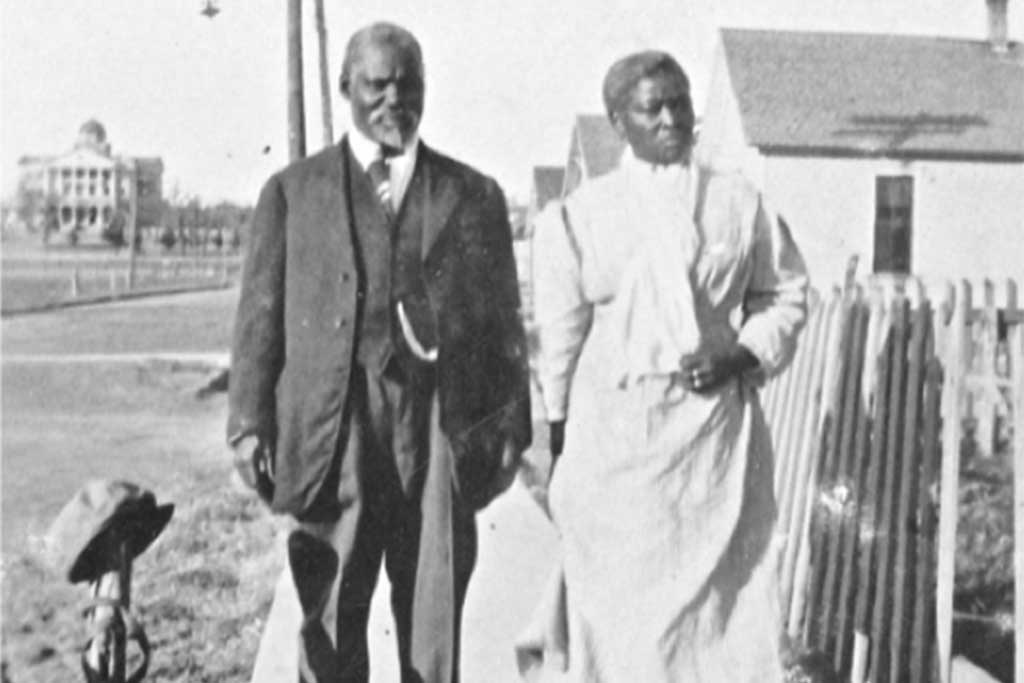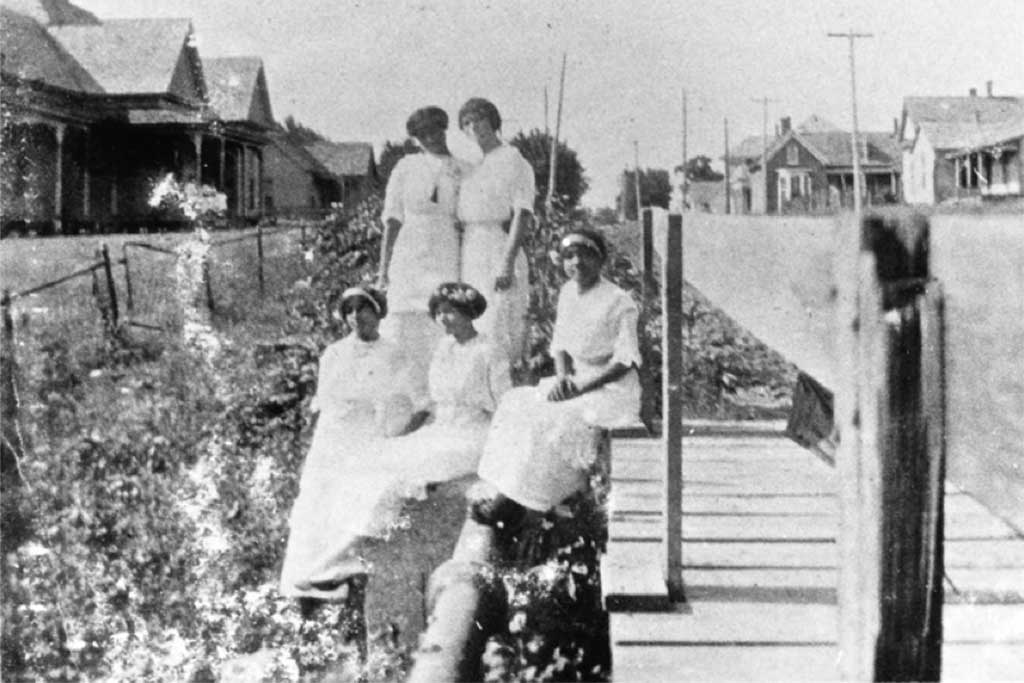Quakertown History

Around the time the City of Denton was incorporated in 1866, a community of African Americans began taking shape within the city in what became known as Quaker. By the early 1920s, the Quaker neighborhood was described by some historians as middle-class and thriving. In 1901, The Girls Industrial College was established and in 1903 college building began just north of the Quaker neighborhood. While there are many accounts of the particular actions and events leading to the forced sale of the nearly 60 Quaker residences in 1922, what is clear, the residents did not relocate willingly. There is also documentation of filed lawsuits and other oral histories of resistance, including one of Mary Ellen Taylor who purportedly stayed defiantly in her rocking chair in her house while it was being moved.
Documented discussions of removing the community and its residents began in Denton as early as 1914. According to an article published January 15, 1914, in the Denton Record-Chronicle, J.N. Rayzor, while serving in his capacity as the chairman of the Denton Chamber of Commerce, discussed the issue at their annual meeting, citing concerns “of the dire calamity that could befall…people…if trouble should occur to anyone passing through Quakertown toward the CIA.” Additional calls for removal were expressed in the City Federation of Women’s Clubs bulletin published May 1914 and again at the annual Denton Chamber of Commerce lunch in 1916 by other prominent residents.
/prod01/twu-cdn-pxl/media/images/quakertown/Quakertown-Map-300px.jpg)
/prod01/twu-cdn-pxl/media/images/student-life/Quakertown-Opposition.png)
While the removal rhetoric cooled during World War I, relocation discussions began again in earnest after the troops returned home. What is also clear is that the leadership at the College of Industrial Arts (CIA, formerly, The Girls Industrial College and later Texas Woman’s University) adopted the relocation mantra and played an integral role in what Dentonites of 1921 called the Park Bond issue.
On November 18, 1920, in a speech delivered to the Denton Chamber of Commerce in support of the upcoming vote on the Park Bond issue, CIA President Bralley said the Park Bond issue would “rid the college of the menace of the negro quarters in close proximity to the college and thereby remove the danger that is always present so long as the situation remains as it is.” This bond issue is viewed by many today as a thinly veiled act of racial injustice intended to create distance between the all-white girls’ college and Black Dentonites, specifically those living in the area of what the City of Denton now calls Quakertown Park.
Quakertown Committee
In 2017, Chancellor Feyten formed the Quakertown Committee. She charged it with developing recommendations that allow the university to publicly acknowledge its past role in the displacement of Quakertown citizens in a way that fosters and promotes better racial unity today.
Former and Current Committee Members:
- Denise Lucero-Miller, Ph.D. (chair), retired director of CAPS, (2017-2021)
- Jacob Blosser, Ph.D., History professor, (2017-present)
- Sheryl English, Denton Realtor and TWU alumna, (2017-present)
- Amy Evans, communications for Student Life and graduate student, (2022-present)
- Robin Head, former associate vice president University Advancement, (2017-2019)
- Anne Jensen-Smith, alumna, (2017-present)
- Christopher Johnson, chief of staff, (2017-present)
- Dianne Randolph, TWU alumna and TWU Foundation Board of Directors, (2017-present)
- Zane Santos, systems engineer, (2017-present)
A Site of Remembrance, Reflection and Commitment

HKS, the architectural firm that created TWU’s master Denton campus plan, is designing the memorial on our Denton campus.
The plan calls for constructing an amphitheater—the circular shape symbolizing an equal positioning of voices in dialogues over difficult topics—surrounded by shade trees to tell the Quakertown story. The space will include a walking path and an augmented reality exhibit that recounts the period’s historical events and social environment.
Along that memorial path will be key images that are forever linked to this tragic narrative: the rocking chair sat in by Mary Ellen Taylor, whose home was lifted onto skids and moved as she defiantly sat in her parlor; and lilac bushes, which were proudly displayed in one neighbor’s garden.
The path will offer members of the community, students, faculty and staff an opportunity to remember the displaced citizens of Quakertown, reflect on concepts of equity and justice, and illuminate TWU’s commitment to principles of diversity and inclusion.
Timeline
- 2017—Committee formed
- 2018—Committee recommendations presented to TWU Cabinet
- 2019—HKS architectural firm hired to design plans for memorial
- 2020—Plans to be finalized
- 2022—100th anniversary of the relocation of Quaker residents
- 2024—Quakertown Memorial completed
For more information
- https://sites.google.com/twu.edu/quakertownstories/home?authuser=0
- https://dentonhistory.net/page32/photos/Quakerphotos.html
- https://apps.dentoncounty.gov/website/HistoricalMarkers/PDFs/Quakertown-Undertold-Story-2010-Subject-Marker-Historical-Narrative-Denton-County.pdf
- https://dentoncountyhistoryandculture.wordpress.com/2017/12/22/historical-park-highlights-the-quakertown-house/
- https://www.thetexasfreedomcoloniesproject.com/
/prod01/twu-cdn-pxl/media/images/quakertown/Quakertown-Hero.jpg)